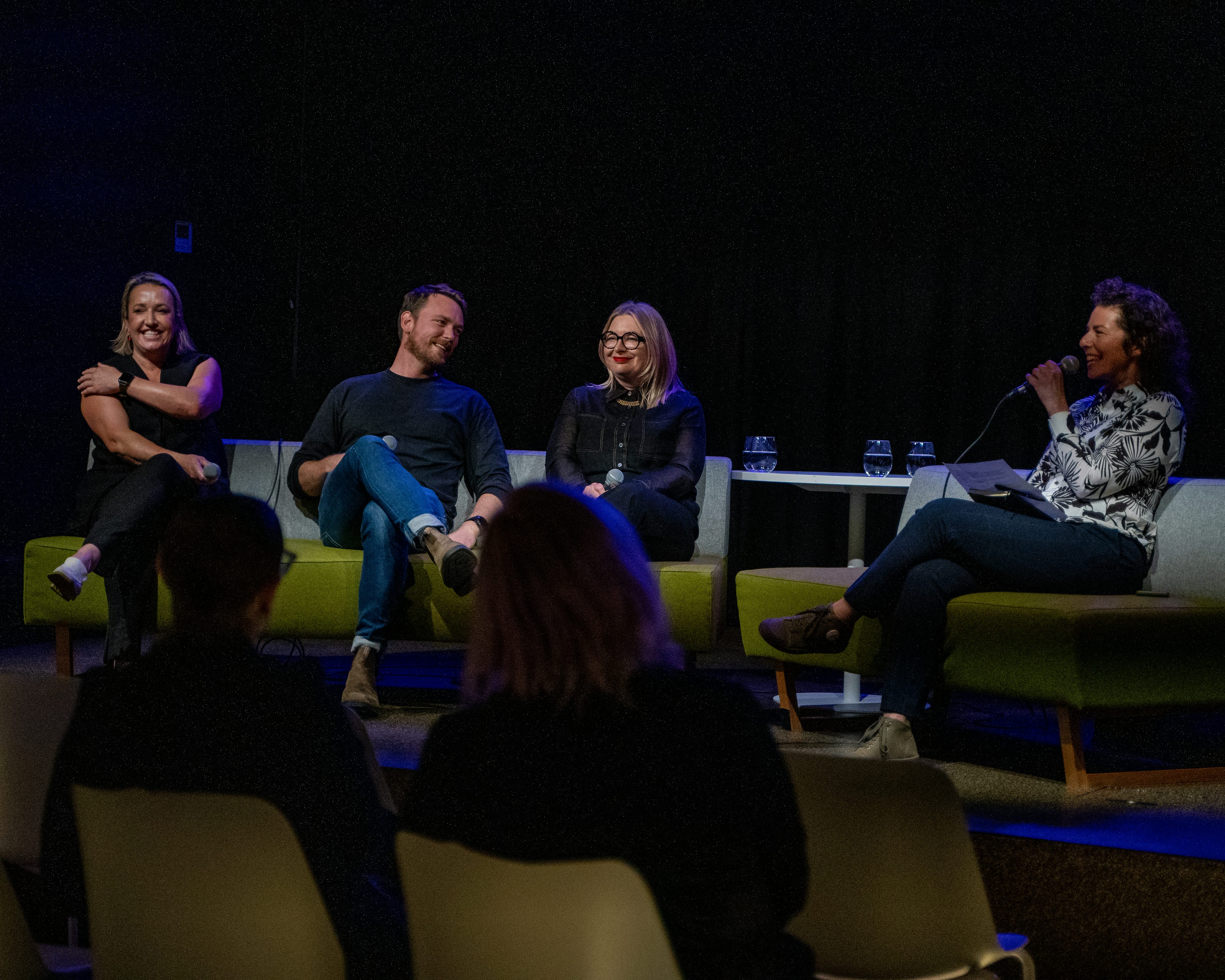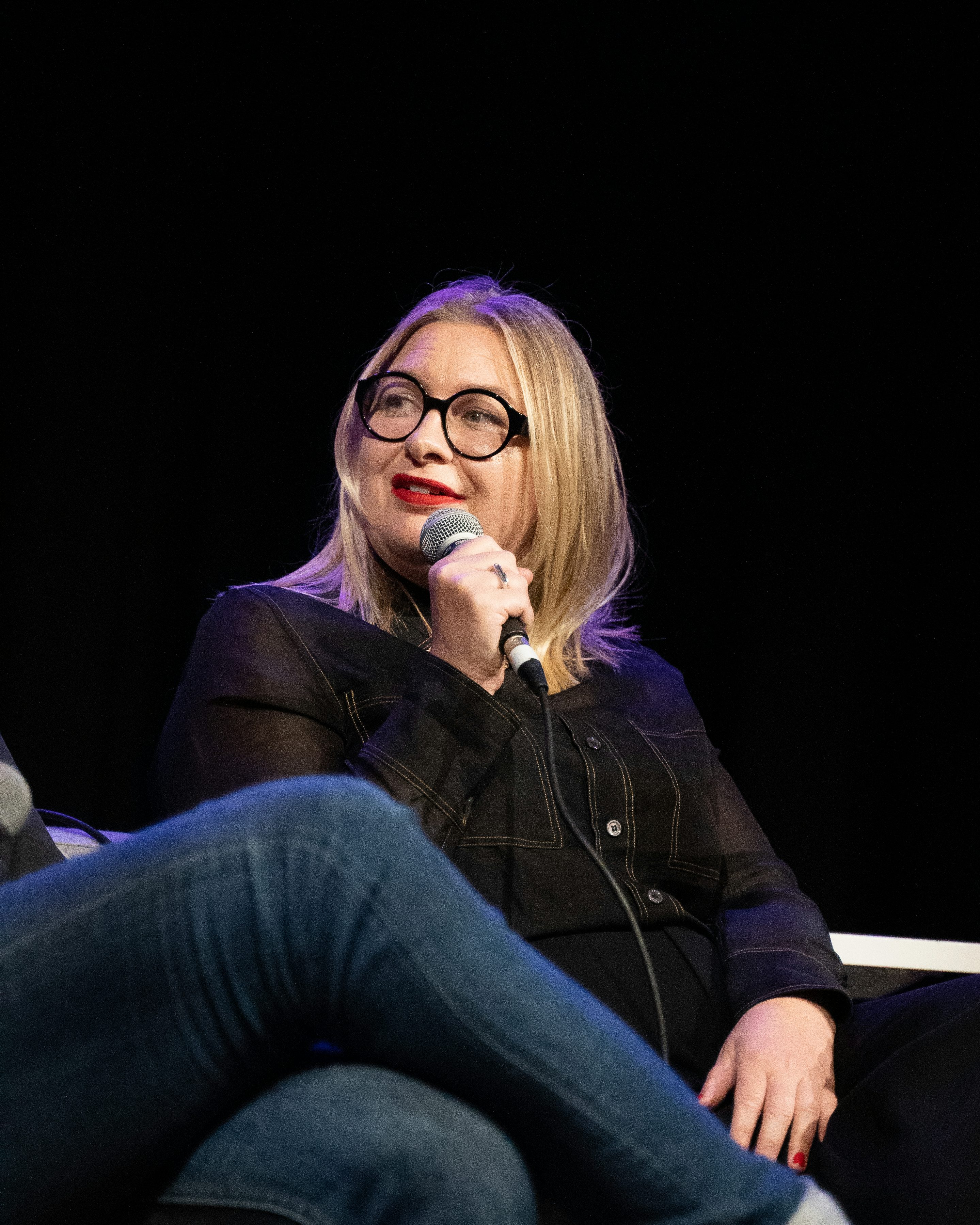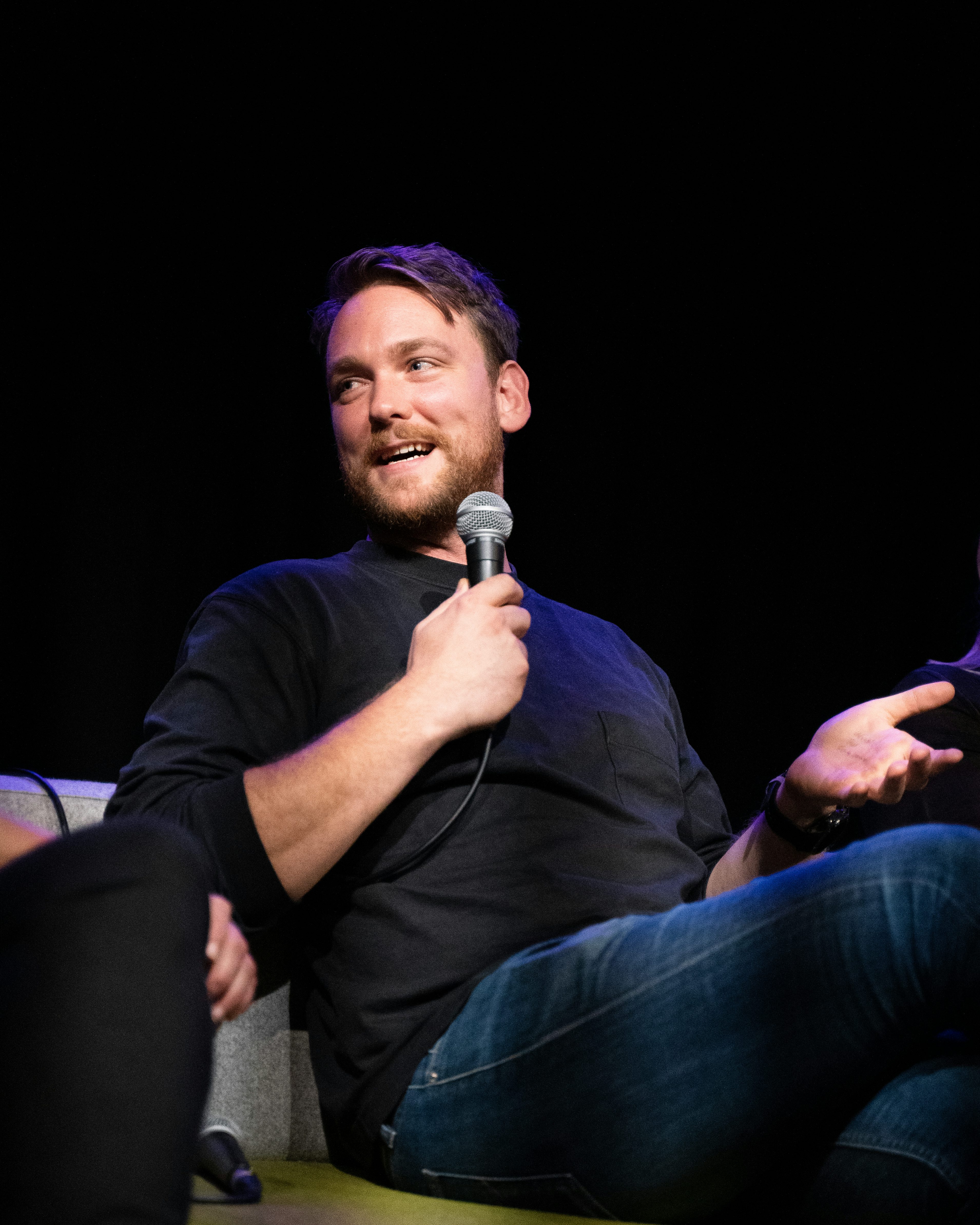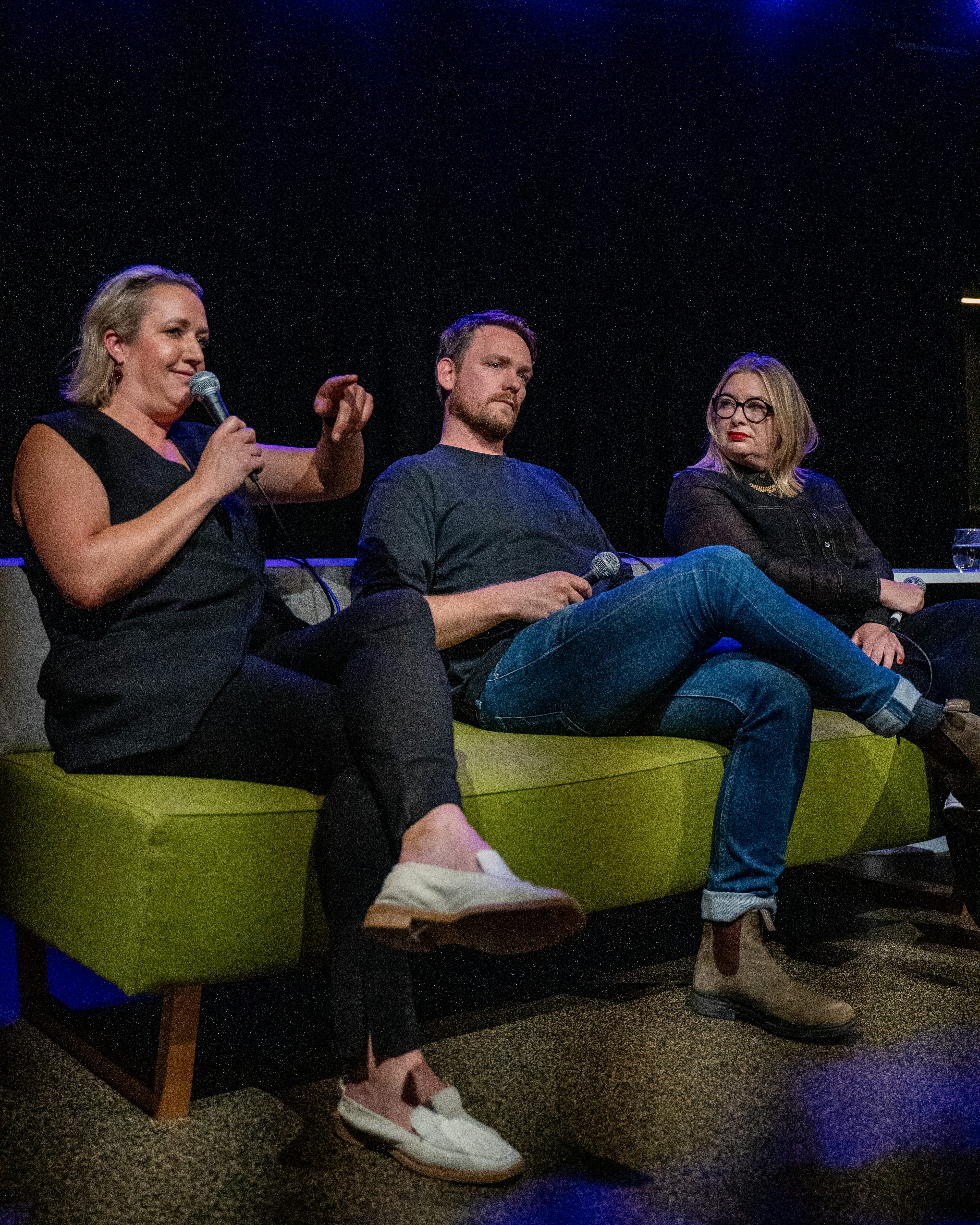Six Things To Know About Getting
A Mentor Or Coach For Your Career
On the 28th of February 2023, the Worksmith community gathered for our first Community Talk of the year. A topic that first surfaced in one of these articles, we were beyond thrilled to see these insights develop from words on a screen to voices on stage.

Featuring two original contributors from the article, Rebekah Malherebe from Silent Partner Projects and Roscoe Power from Worksmith, the duo was joined by Kate Langford, CEO of The Big Group Hospitality Agency and host Dani Valent, a notable food journalist who is no stranger to hosting Worksmith events.
The panel tackled the ins and outs of mentorship and coaching, sharing tips and stories from their own experiences. Here are our six key takeaways.
1. There is a difference between coaching, counselling and mentoring.
All three styles of learning from others are conversation based modalities that are usually one-to-one or within a small group. Counselling is typically provided to help work on aspects you are trying to overcome or mitigate - the negatives - whereas coaching and mentoring tend to focus on building strengths and goals - the positives. However, as Bec points out, both mentorship and coaching are not mutually exclusive, and you can sometimes find yourself jumping from one to another.
“The type of coaching I provide differentiates from counselling as it takes less of a deficit approach and is based on positive psychology, while focusing on strengths and goals. They are focused, short engagement sessions, usually a period of 6-12 sessions. Coaching helps to work with you, and unpick how you contribute to the world in relationship to yourself and others. It’s also a more casual relationship than a mentoring relationship,” says Bec.

Rebekah Mahlerbe, Silent Partner Projects.
When it comes to identifying the right person to take a mentor in your industry, Roscoe has this piece of advice; “I define mentors as people that align with me. I find something that I really like about them that I can emulate. Ask yourself, what are the qualities that I really like from this person? What do they say that really aligns to you? Alignments or identifying somebody with great values that you’d like to download from them, that’s how you define a mentor.”
2. Mentors Don’t Tell You What To Do
They ask questions instead. “Always ask questions, don’t give instructions. I don’t necessarily know the answer so I need to let you reflect on the situation and use my skill set to help you extract the answer,” says Kate.
Finding a mentor isn’t like finding a new parent for your adult life - they shouldn’t be prescriptive but instead help you to find the answers.
3. Get Comfortable with Vulnerability
If you think you want to get a mentor, you’ve already identified in yourself that you have room to grow.
“It’s an extremely positive thing to be vulnerable. The idea of getting a mentor is identifying in yourself that you have room to grow. Sometimes mentors don’t even know they’re being mentors…. they say or do something that you want to replicate. But it all starts from a place of vulnerability. And then find somebody to help you take the next steps,” says Roscoe.

Roscoe Power, Worksmith.
4. Coaches and Mentors Can Help Uncover Your Confidence in Your Own Skills
Your mentor or coach can help you understand what’s important in your work, your role and for you as a professional.These reference points on what is meaningful then translate into your ability to make fast but great decisions.
“As leaders, we need the people in our teams to be able to make quick, confident and strong decisions all day, everyday… something that is a lot of pressure for people coming up in organisations that don’t have a history of leadership or management training,” says Bec. “The type of coaching I do, not only helps them to uncover what is important to them, but feel really confident in it.”
5. Don’t Always Look Up When Searching For a Mentor or Coach
As much as we naturally look to learn from those more senior than us, our panellists all said that didn’t always hold true for finding the best people for the task. “It’s definitely not hierarchy, the best moments come from people who shine the mirror back at you. I've learned the best things from people 20 years younger than me” says Kate.

Kate Langford, The Big Group Hospitality Agency.
“It doesn’t really matter,” agrees Roscoe. “You don’t need a chef mentor to be a better chef. It’s a lot broader than that… where am I now? and where am I going? A mentor can give you the guidance or an idea of a pathway to fight what’s holding you back. But you ultimately need to get there yourself. What does the destination look like? After a period of 4-6 weeks you can start to sketch it out, and draw a vision for yourself with the help of your mentor.”
6. The First Step Starts With a Question
If you’re looking for a mentor or coach and have someone who inspired you in mind, ask yourself what your goal is you’re working towards, and ask them to meet for a coffee.
Any type of engagement takes effort, and that first coffee is a chemistry check. Look for someone for a coffee, and don’t ask too much. The ask comes after the relationship has been built.
If, on the other hand, you’re asked for the first time to mentor someone there’s two important questions to ask your mentee; what are you hoping to get? And how do you want things to be different? This helps to give both of you an understanding of what success in this relationship looks like. They’re good questions to start with for those looking to coach or be coached.
Inspired? Want to learn more? View the full event video here, which includes a comprehensive Q&A session.